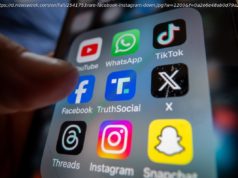The former first lady was notably eager to learn about people she didn’t understand—and recognize she might have been wrong about them.
Some famous people are much less interesting in person than you would expect. Some are more interesting. And a few—a very few—rock your world. For me, Barbara Bush, who left us on Tuesday, occupies that last category, almost by herself.
Many of the tributes to the former first lady portray her as a throwback to an earlier era of American politics, the silver-haired doyenne of a political dynasty. But I came to value her for an additional reason. Her country changed dramatically during her long, full life. But even as some in her Republican Party recoiled from those shifts, Barbara Bush never ceased questioning, learning, and adapting—changing along with the nation that she and her family served.
I met Barbara Bush in October 2015, at the Bush compound at Walker’s Point. I was tagging along with the historian Jon Meacham, who had come to thank the Bushes for their help with his biography of the 41st president. Vascular Parkinson’s disease had limited the president’s use of his voice, so over the course of a four-hour visit, his wife carried much of the conversation.
With two historians visiting, she started recalling the great and near-great that she and her husband had known. Her comments could be cutting, but were not mean. And there was clearly no filter, or at least not one I could detect. “Bill Clinton has a special way of playing golf,” she told us. “He moves the ball”—making a pushing motion—“and he has a hard time counting.” But she liked Bill, praising him for his compassion toward her husband, even as she chided him for cheating at golf.
And she flashed her famously acid wit. I started patting one of the family dogs in the very casual family room of the big house, which the elder Bushes used at Kennebunkport. “This one will bite anyone who tries to hug me,” she warned. “But I haven’t asked your permission to hug you,” I replied, a little startled. (What stranger would try to hug a Secret Service protectee before asking?) Without missing a beat, she replied, “If I don’t like you, I will let you.”
She could get serious, as well, and when she did, you sensed why hers was likely the strongest backbone of the Bush family. The day before, nine people had died in a mass shooting at a community college in Oregon. “We don’t have guns in our house because of me,” she explained. “I don’t like guns.”
At the time I was researching a history of gay men in Washington, D. C. I asked her about the role she had played in encouraging her husband to acknowledge the AIDS crisis. She had suggested that he visit an AIDS clinic during the campaign in 1988, which he did. And in her first weeks as first lady, Bush visited a young man in a hospital who was dying from AIDS. “People thought it was [an easily] communicable disease,” she recalled.
When I said she had been politically courageous, she said, “Not if you think about it. It wasn’t courage.” “But President Reagan didn’t do it,” I countered. The look she gave me signaled her disagreement with Reagan. She then started to describe the dying AIDS patient. “This man, who was a Roman Catholic, had lost his mother when he was young and had been rejected by his father.” Bush teared up as she talked about him. She then added that he had died, as did a baby stricken with AIDS, whom she had also visited. Although these visits had occurred nearly 30 years ago, they seemed to affect her as if they happened just the week before.
We ate lunch at a restaurant in nearby Goose Rocks. Barbara Bush mentioned that the person who greeted them as a friend when we all entered the dining room was gay. “I sensed that,” I said. I paused, then added, “I am gay.” Instantly, she replied with a smile, “I sensed that.”
This is not what I expected to be discussing with a 90-year-old former first lady. But talking about LGBT matters had stirred something that was evidently bothering Mrs. Bush. “Well, you know what I think about President Obama. Did you see that he just appointed a transgender person? Do we announce each time the appointment of a heterosexual?”
She said she wasn’t against the hire, she just didn’t understand why the White House should make a point of a person’s sexual identity. I explained, as best I could, the sensitivity of the transgender community, because for so long the focus of the struggle for LGBTQ rights had been on the G and the L, and, respectfully, reminded her that when the White House recognizes a group it has a tremendously positive effect on not only that group’s self confidence but on how other Americans view that group’s place in our society.
She didn’t seem convinced that the Obama White House had done the right thing. She asked me what I thought of Caitlyn Jenner, who had come out as a transgender woman only six months before. I described her as an important symbol. “But why is she a hero?” As she repeated the question, Bush wondered how important gender-reassignment surgery was for defining gender. I told her about my own experience coming out as a gay man: “It is a difficult journey for all of us, and what we should do is hope that people are happy.” I argued that a person should be allowed to come to terms with their own sexuality or gender identity in their own way. And she agreed. “It is not a choice,” she then said, more as a statement than a question. “We are just wired this way,” I added in agreement.
As the lunch was winding down, Bush explained how the world had changed around her and how she had changed. She vividly recalled that when she was growing up, her hometown of Rye, New York, not only had no African Americans, but it was full of prejudice against the Irish and the Jews. “It all changed and it is good,” she concluded. She worried, however, that not all Americans could embrace the changes as she and her husband did. In particular, she feared someone full of hate would try to take out their anger on Obama. She was critical of Obama the politician—“every day he blames George [W.] for something”—but she mentioned more than once how concerned she was for his physical safety in the current climate of the country.
As we took our leave, she became once more the matriarch of a great political dynasty. “Remember, tell your friends, when push comes to shove, don’t forget that Jeb is the best!”
I have to admit that I left the lunch a little concerned that I had been so disarmed by Barbara Bush’s candor that I had become too informal. When I got home I read her inscription to me in her book—“With every good wish & so enjoyed being with you!”—and felt somewhat reassured.






